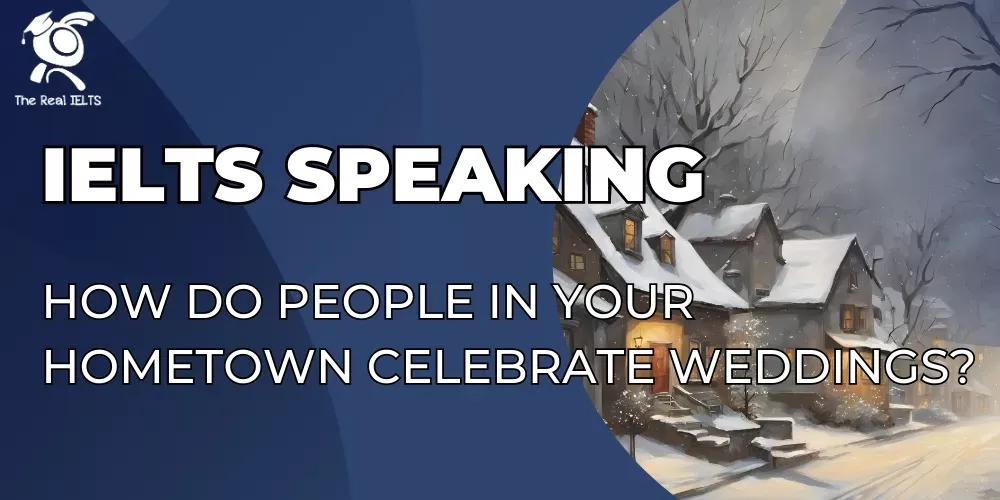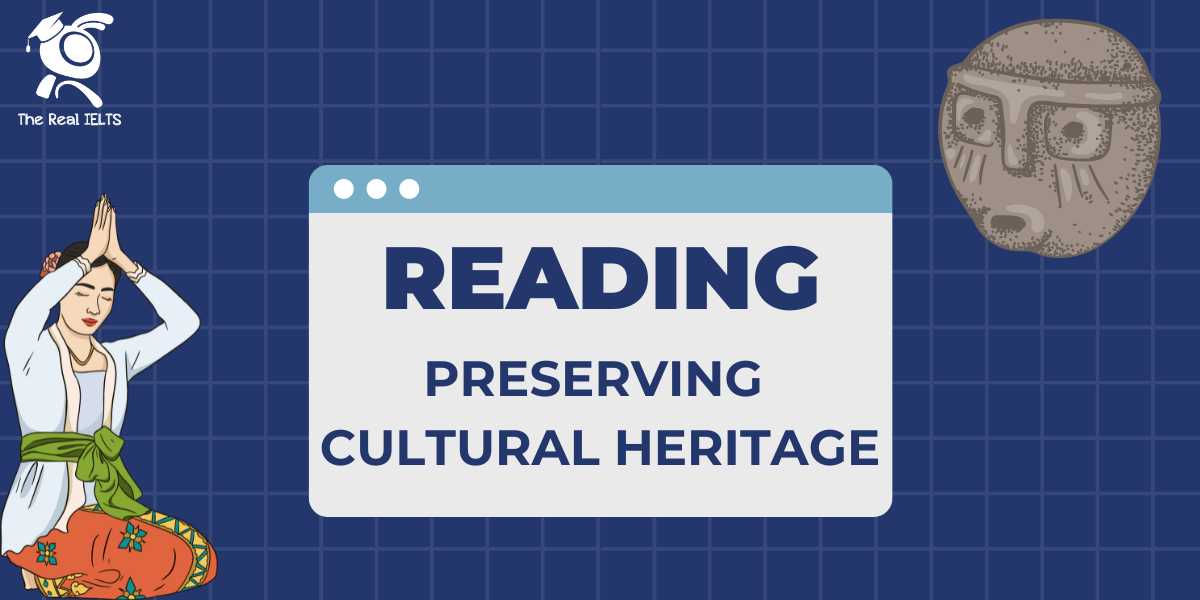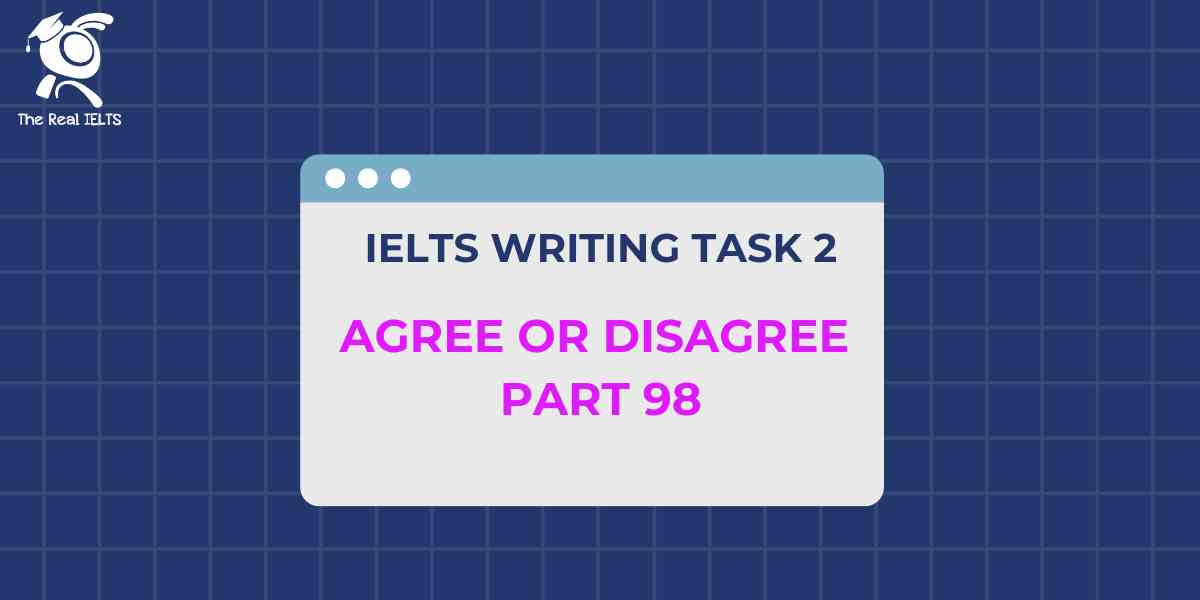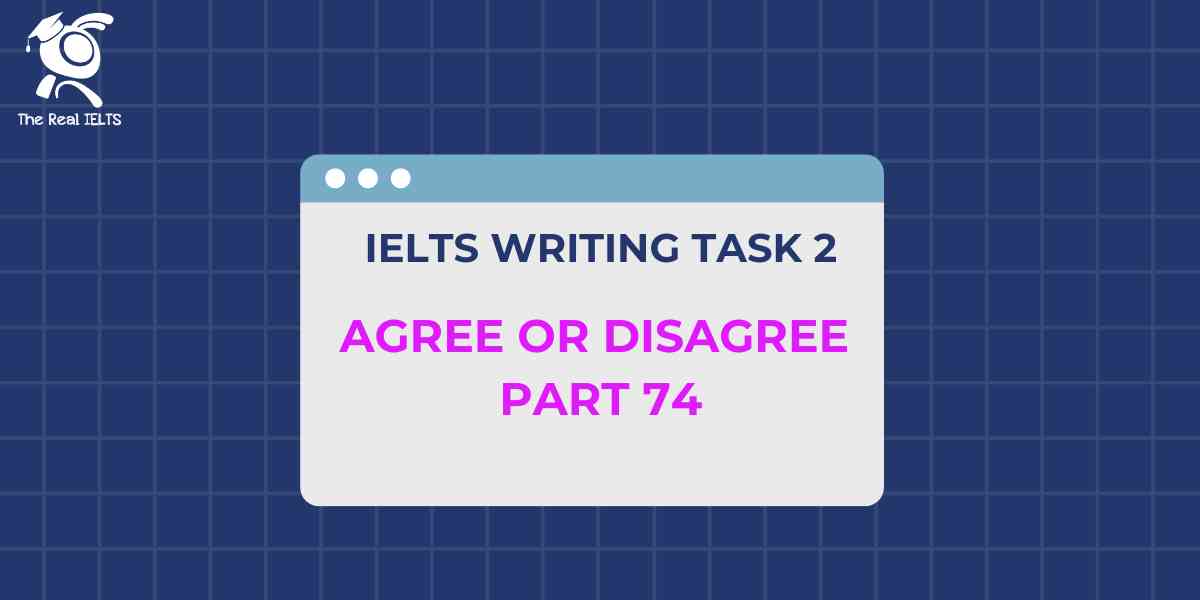Trong bài viết IELTS Speaking, chúng ta sẽ tìm hiểu cách người dân quê hương tổ chức lễ cưới, từ các nghi thức truyền thống đến phong cách hiện đại, tạo nên bản sắc độc đáo.
Đọc thêm các bài luyện thi IELTS khác.
Đọc thêm câu hỏi khác tại: IELTS Speaking Part 1: Introduction and Interview chủ đề Your hometown.
Đọc thêm: IELTS Speaking: Are there any famous people from your hometown?
Câu trả lời cho IELTS Speaking: How do people in your hometown celebrate weddings?
Ví dụ 1
Introduction:
In my hometown, weddings are one of the most significant and joyous occasions, deeply rooted in tradition and cultural values. They are not just a union of two individuals but also a celebration that brings families, friends, and the entire community together. The way we celebrate weddings reflects our rich cultural heritage and the importance we place on family bonds.
Pre-Wedding Rituals:
The celebrations usually begin well before the actual wedding day. One of the most important pre-wedding rituals is the engagement ceremony, where the families of the bride and groom formally agree to the marriage. This is often followed by a series of events like the Mehndi ceremony, where the bride’s hands and feet are adorned with intricate henna designs. There’s also a Sangeet night, which is essentially a musical evening filled with dancing, singing, and performances by family and friends. These events are vibrant and lively, with everyone dressed in colorful traditional attire.
The Wedding Day:
On the wedding day, the festivities reach their peak. The ceremony itself is usually held in a banquet hall or sometimes at home, depending on the family’s preference. The bride typically wears a red or maroon lehenga or saree, symbolizing prosperity and fertility, while the groom wears a sherwani or a traditional suit. The wedding rituals are conducted by a priest, and they include the exchange of garlands, the tying of the sacred knot, and the seven vows taken around a holy fire. These rituals are deeply symbolic and are believed to strengthen the bond between the couple.
Post-Wedding Celebrations:
After the ceremony, there’s a grand reception where guests are treated to a lavish feast. The food is a highlight of the celebration, with a variety of traditional dishes served. It’s common to see dishes like biryani, kebabs, and a range of sweets like gulab jamun and jalebi. The reception is also a time for guests to bless the newlyweds and offer gifts. In some families, there’s also a Vidaai ceremony, where the bride bids an emotional farewell to her family as she leaves for her new home with the groom.
Modern Influences:
While traditional elements remain at the heart of weddings in my hometown, modern influences have started to blend in. For instance, many couples now opt for destination weddings or incorporate Western elements like a white wedding gown or a DJ night. However, the essence of the celebration remains the same—bringing people together to celebrate love and unity.
Conclusion:
Overall, weddings in my hometown are a beautiful blend of tradition, joy, and community spirit. They are not just about the couple but also about strengthening familial ties and creating memories that last a lifetime. It’s a time when everyone comes together to celebrate, and the atmosphere is always filled with happiness and excitement.
Ví dụ 2
Introduction:
Weddings in my hometown are grand, colorful, and deeply meaningful events. They are not just about the couple getting married but also about the coming together of families and communities. The celebrations are a beautiful mix of age-old traditions and modern touches, making them unique and memorable.
Pre-Wedding Festivities:
The wedding celebrations usually start days before the actual ceremony. One of the most exciting pre-wedding events is the Mehndi ceremony, where the bride and other women in the family get intricate henna designs applied to their hands and feet. This is often accompanied by music, dancing, and a lot of laughter. Another important event is the Haldi ceremony, where a paste made of turmeric, sandalwood, and other ingredients is applied to the bride and groom’s skin. This ritual is believed to bring a natural glow and ward off evil spirits. These events are usually held at home, creating a warm and intimate atmosphere.
The Wedding Ceremony:
The wedding day itself is a grand affair. The ceremony is typically held in a decorated venue, such as a banquet hall or a temple, depending on the family’s preferences. The bride usually wears a stunning traditional outfit, often in shades of red or gold, while the groom dons a sherwani or a formal suit. The rituals are conducted by a priest and include the exchange of garlands, the tying of the sacred thread, and the couple taking seven vows around a holy fire. These vows symbolize their commitment to each other and their shared responsibilities in marriage. The atmosphere is filled with joy, and the air is often scented with flowers and incense.
Post-Wedding Traditions:
After the ceremony, there’s usually a grand reception where family, friends, and even distant relatives gather to celebrate. The reception is often a lavish event with a lot of food, music, and dancing. Traditional dishes like biryani, paneer, and various sweets are served, and it’s a time for everyone to enjoy themselves. One of the most emotional moments is the Vidaai ceremony, where the bride says goodbye to her family and leaves for her new home with the groom. This moment is often filled with tears and blessings, as it marks the beginning of a new chapter in her life.
Modern Trends:
While traditional customs are still very much alive, modern weddings in my hometown have started to incorporate new trends. For example, many couples now hire professional photographers and videographers to capture every moment of their special day. Some even opt for themed weddings or destination weddings, which add a unique touch to the celebrations. However, no matter how modern the wedding becomes, the core values of love, family, and tradition remain at the heart of the event.
Conclusion:
In summary, weddings in my hometown are a vibrant and joyous celebration of love, family, and culture. They are a perfect blend of tradition and modernity, creating memories that last a lifetime. Whether it’s the colorful rituals, the delicious food, or the emotional moments, weddings are always a special occasion that brings people together.
Ví dụ 3
Introduction:
Weddings in my hometown are not just events; they are a celebration of love, family, and culture. They are deeply rooted in tradition, yet they also reflect the changing times. For me, weddings are always a time of joy, connection, and unforgettable memories.
Pre-Wedding Celebrations:
The excitement begins long before the wedding day. One of the most memorable pre-wedding events is the Mehndi ceremony. It’s a lively gathering where the bride and her female relatives and friends get beautiful henna designs on their hands and feet. There’s always music, dancing, and a lot of laughter. Another special event is the Sangeet, which is essentially a musical night where both families come together to sing, dance, and celebrate. These events are not just fun but also a way to strengthen the bond between the two families.
The Wedding Day:
The wedding day itself is a grand affair. The ceremony usually takes place in a beautifully decorated venue, often a banquet hall or a temple. The bride wears a stunning traditional outfit, often in red or gold, which symbolizes prosperity and happiness. The groom, on the other hand, usually wears a sherwani or a formal suit. The rituals are conducted by a priest and include the exchange of garlands, the tying of the sacred thread, and the couple taking seven vows around a holy fire. These vows are not just words; they are promises that the couple makes to each other, symbolizing their commitment and love.
Post-Wedding Traditions:
After the ceremony, there’s a grand reception where everyone comes together to celebrate. The reception is often a lavish event with a lot of food, music, and dancing. Traditional dishes like biryani, paneer, and various sweets are served, and it’s a time for everyone to enjoy themselves. One of the most emotional moments is the Vidaai ceremony, where the bride says goodbye to her family and leaves for her new home with the groom. This moment is often filled with tears and blessings, as it marks the beginning of a new chapter in her life.
Modern Influences:
While traditional customs are still very much alive, modern weddings in my hometown have started to incorporate new trends. For example, many couples now hire professional photographers and videographers to capture every moment of their special day. Some even opt for themed weddings or destination weddings, which add a unique touch to the celebrations. However, no matter how modern the wedding becomes, the core values of love, family, and tradition remain at the heart of the event.
Personal Reflection:
For me, weddings are always a time of joy and connection. They remind me of the importance of family and the strength of our cultural traditions. I remember attending my cousin’s wedding last year, and it was one of the most beautiful and emotional events I’ve ever experienced. The rituals, the food, the music, and the love in the air made it a truly unforgettable experience.
Conclusion:
In conclusion, weddings in my hometown are a beautiful blend of tradition and modernity. They are a celebration of love, family, and culture, and they bring people together in a way that few other events can. Whether it’s the colorful rituals, the delicious food, or the emotional moments, weddings are always a special occasion that leaves a lasting impression.
Ví dụ 4
Introduction:
Weddings in my hometown are vibrant, joyous, and deeply meaningful events. They are a perfect blend of tradition, celebration, and community spirit. From the colorful decorations to the rhythmic music and the mouth-watering food, every aspect of a wedding is designed to create unforgettable memories.
Pre-Wedding Festivities:
The wedding celebrations begin days before the actual ceremony. One of the most exciting pre-wedding events is the Mehndi ceremony. The bride’s hands and feet are adorned with intricate henna designs, which are believed to bring good luck and prosperity. The air is filled with the scent of henna, and the atmosphere is lively with music and dance. Another important event is the Haldi ceremony, where a paste made of turmeric, sandalwood, and rose water is applied to the bride and groom’s skin. This ritual is thought to purify and bless the couple, giving them a radiant glow.
The Wedding Ceremony:
The wedding day itself is a grand and emotional affair. The ceremony usually takes place in a beautifully decorated venue, often a banquet hall or a temple. The bride typically wears a stunning red or gold lehenga, symbolizing prosperity and happiness, while the groom wears a traditional sherwani. The rituals are conducted by a priest and include the exchange of garlands, the tying of the sacred thread, and the couple taking seven vows around a holy fire. These vows are not just words; they are promises that the couple makes to each other, symbolizing their commitment and love. The air is filled with the fragrance of flowers and incense, and the sound of traditional music adds to the sacred atmosphere.
Post-Wedding Celebrations:
After the ceremony, there’s a grand reception where family, friends, and even distant relatives gather to celebrate. The reception is often a lavish event with a lot of food, music, and dancing. Traditional dishes like biryani, kebabs, and a variety of sweets are served, and it’s a time for everyone to enjoy themselves. One of the most emotional moments is the Vidaai ceremony, where the bride says goodbye to her family and leaves for her new home with the groom. This moment is often filled with tears and blessings, as it marks the beginning of a new chapter in her life.
Modern Influences:
While traditional customs are still very much alive, modern weddings in my hometown have started to incorporate new trends. For example, many couples now hire professional photographers and videographers to capture every moment of their special day. Some even opt for themed weddings or destination weddings, which add a unique touch to the celebrations. However, no matter how modern the wedding becomes, the core values of love, family, and tradition remain at the heart of the event.
Sensory Details:
What I love most about weddings in my hometown is the sensory experience. The vibrant colors of the decorations, the rhythmic beats of the music, the tantalizing aroma of the food, and the emotional warmth of the people all come together to create a magical atmosphere. It’s a feast for the senses and a celebration of life and love.
Conclusion:
In summary, weddings in my hometown are a beautiful blend of tradition and modernity. They are a celebration of love, family, and culture, and they bring people together in a way that few other events can. Whether it’s the colorful rituals, the delicious food, or the emotional moments, weddings are always a special occasion that leaves a lasting impression.















